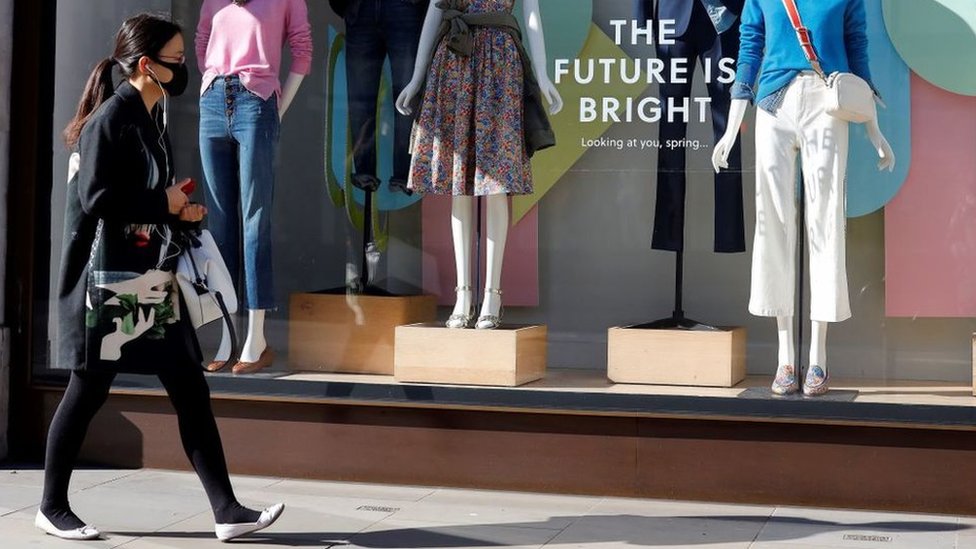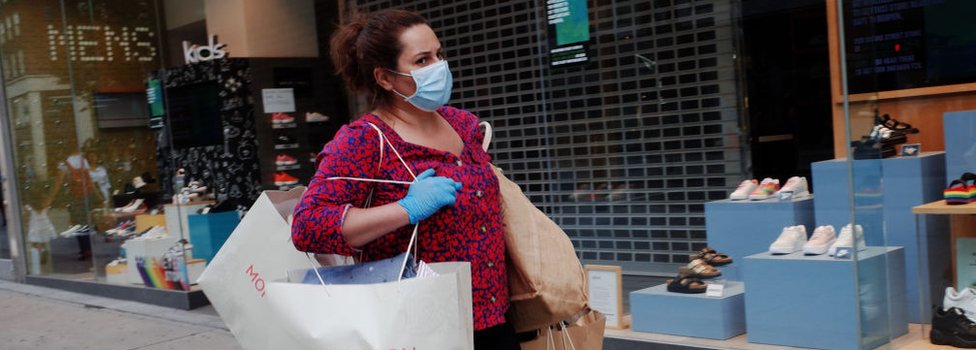Clothes and food drive down UK inflation

Lower prices for clothing, food and non-alcoholic drinks made the biggest contribution to the fall, the Office for National Statistics said.
However, games, toys and hobbies increased in price, partly offsetting those declines.
The figures reflect the fact that most of the country was in some form of Covid lockdown during the month.
Games, toys and other recreational activities became more expensive as people tried to amuse themselves while their movements were restricted.
Normally, prices for clothes fall each year in summer sales before autumn ranges come in, then rise before further sales towards the end of the year, the ONS said.
Clothes would usually go up in price in November, the ONS said.
However, the coronavirus crisis has changed how prices move.

What is inflation?

Inflation is the rate at which the prices for goods and services increase.
It affects everything from mortgages to the cost of our shopping and the price of train tickets.
It's one of the key measures of financial well-being, because it affects what consumers can buy for their money. If there is inflation, money doesn't go as far.

The latest inflation figures come amid evidence that shop prices are falling in the run-up to Christmas, as retailers race to clear stock and deal with a "deepening" High Street crisis.
"With significant restrictions in place across the UK, inflation slowed, predominantly due to clothing and food prices. Also, after several months of buoyant growth, second-hand car prices fell back a little," said the ONS deputy national statistician for economic statistics, Jonathan Athow.
Discounts are most common at retailers selling fashion and DIY goods, according to the British Retail Consortium's (BRC) Shop Price Index.
Unexpected
The sharp fall in inflation "came as a bit of a surprise", said Ruth Gregory, senior UK economist at Capital Economics.
"What we hadn't anticipated was the slump in food inflation from 0.6% to -0.6%, which came despite the boost to demand for food in the supermarkets during the second Covid-19 lockdown."
However, she added: "This does not change the big picture that inflation will start to rise more sharply from April when the temporary VAT cut for the hospitality sector is reversed and the downward drag from the previous plunge in fuel prices drops out of the annual comparison.
"Together these forces could lift inflation to 2% by the middle of next year. But given there will still be some spare capacity in the economy, there seems little danger of inflation rising sustainably above the 2% target unless there is a no-deal Brexit."

December 16, 2020 at 08:33PM
https://www.bbc.co.uk/news/business-55329370
Labels: BBC News

0 Comments:
Post a Comment
Subscribe to Post Comments [Atom]
<< Home